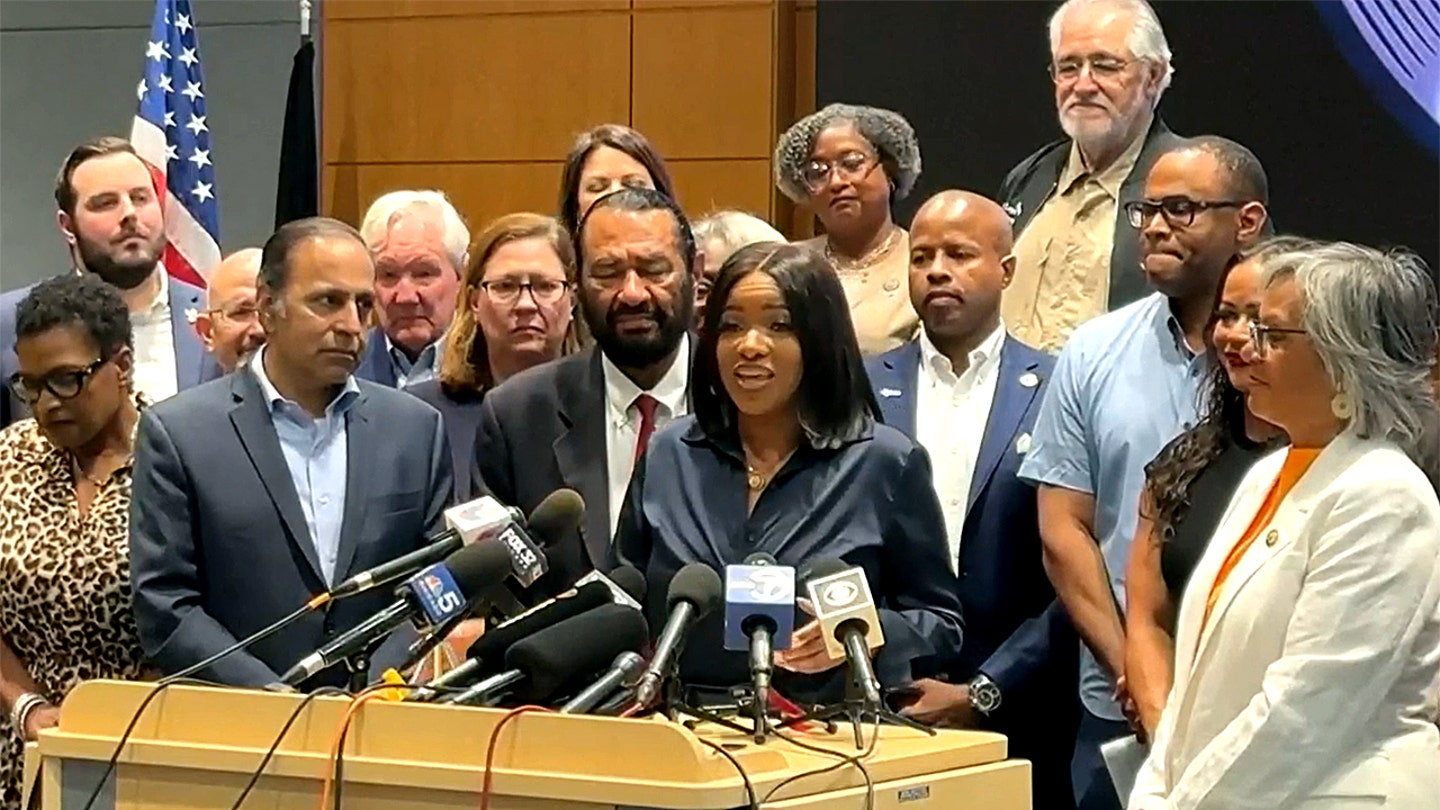NEWYou now have the option to listen to news articles!
The ongoing redistricting dispute in various states is shedding light on the issue of how the census counts non-citizens, including those residing in the country illegally, and whether this is affecting the data used to determine congressional seats and Electoral College votes.
Texas is currently in the process of redistricting, while states like California are considering their own redistricting efforts to counter potential gains by the Republican party.
There is a debate surrounding the inclusion of a citizenship verification question on the census, with some advocating for the use of only citizen figures to determine congressional districts and Electoral College numbers.
SENATE REPUBLICANS TAKE ACTION TO PREVENT ILLEGAL IMMIGRANTS FROM VOTING IN ELECTIONS
An envelope containing a 2020 census letter mailed to a U.S. resident in Detroit. A federal judge on Thursday, May 21, 2020, agreed to impose financial sanctions against the Trump administration for failing to produce hundreds of documents during litigation over whether a citizenship question could be added to the 2020 census. (Paul Sancya/AP Photo)
In the midst of these discussions, certain blue states and sanctuary cities have experienced significant immigration enforcement activities, raising questions about the impact of illegal immigrants on the 2020 census data, particularly in light of the Biden-era border crisis.
The Office of Homeland Security Statistics reported in 2024 that California had approximately 2.6 million unauthorized immigrants, while Texas had just over 2 million in 2022.
Other states such as Florida, New Jersey, Illinois, New York, North Carolina, Georgia, Washington, and Arizona also had significant numbers of unauthorized immigrants according to the office’s estimates at the time.
TRUMP’S IMMIGRATION POLICY IMPACTS WAGES AND ECONOMIC REFORM

Immigrants wait to be processed at a U.S. Border Patrol transit center after they crossed the border from Mexico on December 20, 2023 in Eagle Pass, Texas. A late-year surge of migrants crossing the U.S. southern border has overwhelmed U.S. immigration officials. (John Moore/Getty Images)
The “Equal Representation Act,” which has garnered significant Republican support, was reintroduced in the Senate in June. The act proposes the inclusion of a citizenship question and the exclusion of non-citizens from the apportionment process, citing their substantial political influence.
“It is unacceptable that illegal immigrants and non-citizens are factored into congressional district apportionment and our electoral map for the presidency, resulting in a skewed seat count in the U.S. House of Representatives,” stated Sen. Bill Hagerty, R-Tenn., in June.
FOR MORE ON IMMIGRATION, CLICK HERE
“Many Americans are unaware that states with higher numbers of illegal immigrants receive greater representation in Congress. Addressing this issue must be part of any redistricting reform discussions moving forward,” remarked Rep. Kevin Kiley, R-Calif., in a statement to Fox News Digital.
TRUMP AND REPUBLICANS RACE TO REVISE TEXAS CONGRESSIONAL MAP AMID DEMOCRATIC THREATS OF LEGAL ACTION

Texas Democrats stood next to Illinois lawmakers on Aug. 4, 2025, to oppose redistricting measures proposed by Texas Republicans. (Fox News)
Republicans argue that counting non-citizens, including those in the country illegally, leads to inflated representation figures. The recent influx of illegal immigrants during the Biden administration has reignited concerns on this front.
A proposal from Rep. Chuck Edwards passed the House last year but did not become law. It has been reintroduced by Republicans in the current session.
“Even if no illegal immigrants vote, their mere presence in the U.S. significantly impacts election outcomes, distorting the representation of Americans,” Edwards emphasized.
“The U.S. Constitution mandates a census every ten years, counting all individuals present in the country, regardless of citizenship or immigration status. However, it does not specify whether non-citizens or illegal aliens should be included in apportioning House seats,” he added.
Cameron Arcand is a politics writer at Fox News Digital in Washington D.C. Story tips can be sent to Cameron.Arcand@Fox.com and on Twitter: @cameron_arcand





